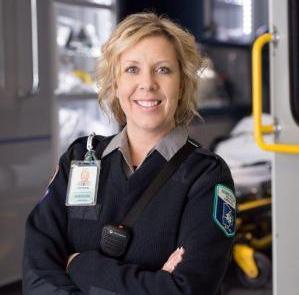| |
About the Author

Years ago my neighbor John from down the road told me there was a volunteer first responder class being held evenings. Since my bank job ended at 4pm he figured I could probably swing the time, and volunteers were needed badly. From those years of responding in a private car with a pager, to volunteering 30 miles away as an EMT-B, the EMS bug took hold. Roles over the years have included working for a private inter-facility transport service, rural emergency room EMT for five years, emergency medical dispatcher for helicopter and ground EMS for six years, then on to the paramedic classroom and critical care licensure. The more I learn, the more I see I have yet to be taught. The more people I meet, the more stories I'm told. The front row seat to the human experience never grows old.
>> Click to email the author.
|